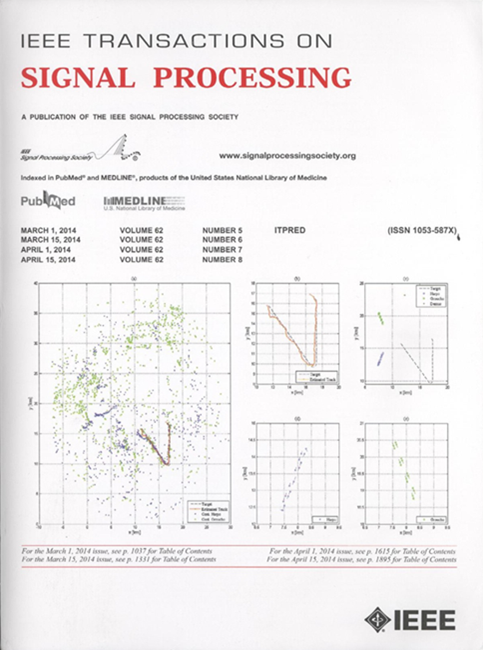Magnitude Matters: Fixing signSGD Through Magnitude-Aware Sparsification and Error Feedback in the Presence of Data Heterogeneity
IF 4.6
2区 工程技术
Q1 ENGINEERING, ELECTRICAL & ELECTRONIC
引用次数: 0
Abstract
Communication overhead has become one of the major bottlenecks in the distributed training of deep neural networks. To alleviate the concern, various gradient compression methods have been proposed, and sign-based algorithms are of surging interest. However,幅度很重要:在数据异构的情况下,通过幅度感知的稀疏化和误差反馈修复 SIGNSGD
通信开销已成为深度神经网络分布式训练的主要瓶颈之一。为了缓解这一问题,人们提出了各种梯度压缩方法,其中基于符号的算法备受关注。然而,符号 SGD 在数据异构的情况下无法收敛,这在新兴的联合学习(FL)范式中很常见。有人提出了错误反馈来解决不收敛问题。然而,它要求工作人员在本地跟踪压缩错误,这使它不适合联合学习,因为工作人员可能不会在整个学习过程中参与训练。在本文中,我们提出了一种幅度驱动的稀疏化方案,在解决 signSGD 的不收敛问题的同时,进一步提高了通信效率。此外,我们还进一步采用了局部更新和误差反馈方案来提高学习性能(即测试精度和通信效率),并确定了所提方法的收敛性。通过在 Fashion-MNIST、CIFAR-10、CIFAR-100、Tiny-ImageNet 和 Mini-ImageNet 数据集上进行大量实验,验证了所提方案的有效性。
本文章由计算机程序翻译,如有差异,请以英文原文为准。
求助全文
约1分钟内获得全文
求助全文
来源期刊

IEEE Transactions on Signal Processing
工程技术-工程:电子与电气
CiteScore
11.20
自引率
9.30%
发文量
310
审稿时长
3.0 months
期刊介绍:
The IEEE Transactions on Signal Processing covers novel theory, algorithms, performance analyses and applications of techniques for the processing, understanding, learning, retrieval, mining, and extraction of information from signals. The term “signal” includes, among others, audio, video, speech, image, communication, geophysical, sonar, radar, medical and musical signals. Examples of topics of interest include, but are not limited to, information processing and the theory and application of filtering, coding, transmitting, estimating, detecting, analyzing, recognizing, synthesizing, recording, and reproducing signals.
 求助内容:
求助内容: 应助结果提醒方式:
应助结果提醒方式:


